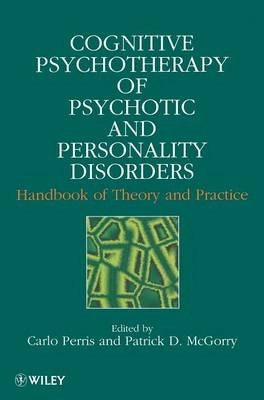Psychotic and personality disorders account for a large proportion of serious mental disorder, which can strike at the young and threaten normality and well-being through a lifetime, as well as at the old, destroying the quality of life in later years. These disorders are now being given priority by funders of mental health services. Many clinicians are using cognitive psychotherapy as an effective, person-centred psychological approach to the assessment, treatment and prevention of these serious mental disorders. This volume represents an authoritative survey of knowledge and practice by the leading research and clinical workers in this field of cognitive psychotherapy. Over recent years an impressive amount of research and clinical evidence has supported the effectiveness of cognitive therapy and related psychological treatment approaches, sometimes in conjunction with a new generation of antipsychotic and antidepressant drugs with better efficacy and lower side effects. The attraction of cognitive interventions is that they are empowering and humanistic in their respect for the person, they are based on clinically testable theories, they are highly compatible with biological models of vulnerability and disorder, and they are pragmatic in terms of length and depth of intervention. Further, within the cognitive approach, as demonstrated in this volume, there can be a range of approaches to the patient. All of these have in common an optimistic and humane approach to patients and their disorders. From the Foreword by Aaron Beck " the different articles in the book have been successful in applying many of the principles of cognitive therapy and have added much more in verifying the treatment of conditions such as dissociative disorders and personality disorders."
Åtkomstkoder och digitalt tilläggsmaterial garanteras inte med begagnade böcker





















